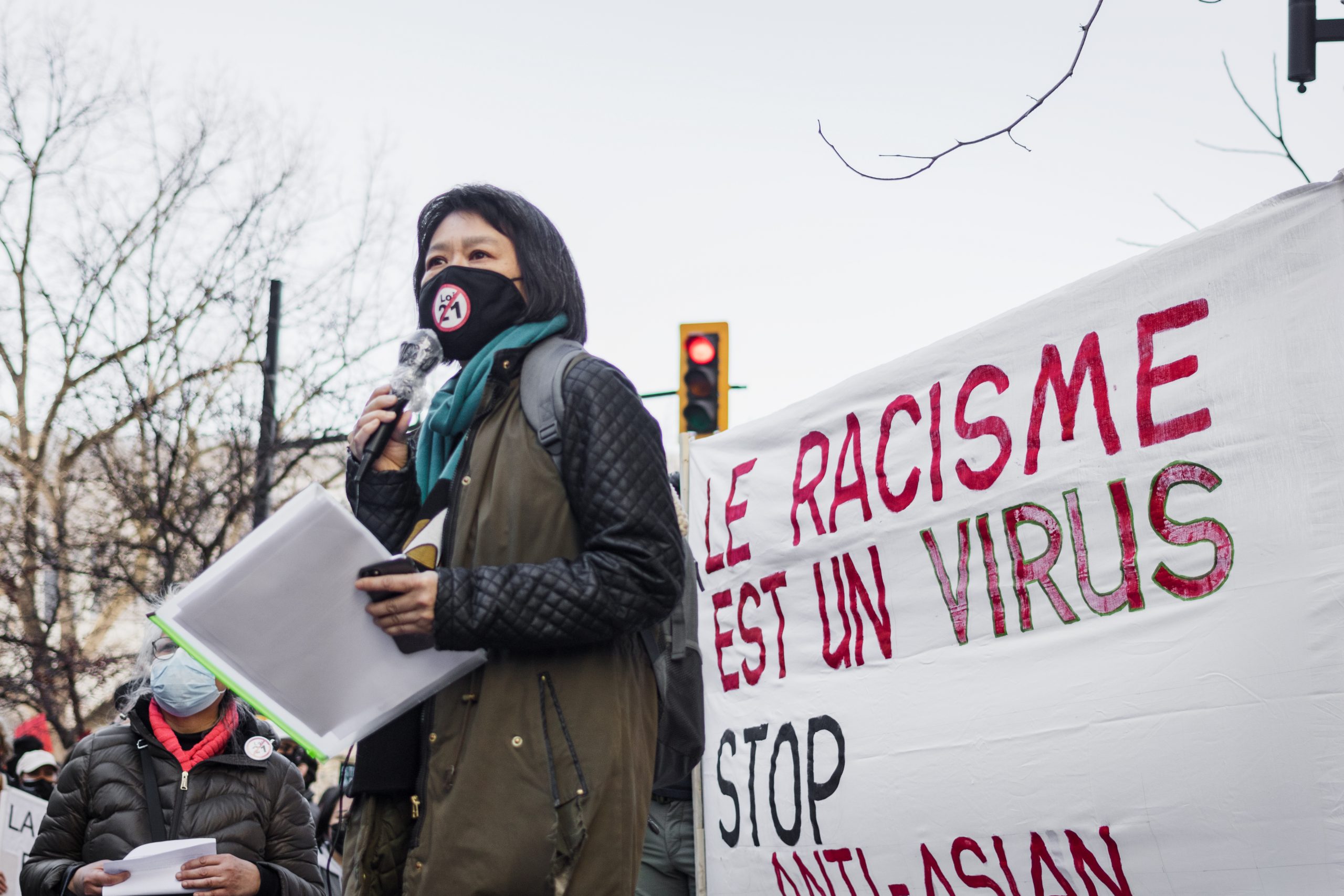One of the protest’s organizers tells us how we can show continued support
Calls to “Stop Asian hate!” echoed through the streets of Montreal on Sunday, when thousands marched to protest anti-Asian hate crimes and to show their support for the Asian community in Quebec and abroad. The protesters marched from Cabot Square to Chinatown, shouting call and response chants.
Store owners along Saint-Catherine Street stood outside their businesses taking photos and cheering on the protestors as they made their way towards Chinatown. The protest ended with a vigil for the six Asian women murdered in Atlanta last week.
Violence towards the Asian community has increased rapidly since the beginning of the pandemic. British Columbia Premier John Horgan recently announced that the Vancouver Police Department has reported a 717 per cent increase in hate crimes against Asian-Canadians since the outbreak of the pandemic.
One of the protest’s organizers, a member of Progressive Chinese of Quebec (PCQ) and Groupe d’entraide contre le racisme envers les Asiatiques du Québec (GECREAQ) spoke to The Concordian about the backwards sentiment behind these attacks. The individual wishes to keep their identity private.
“We are being scapegoated for a virus that’s a consequence of climate change, which is a consequence of our capitalist world.” They said that on top of struggling to adjust to life during COVID-19, “We are also feeling anxious to go into work or walk down the street, because getting attacked in broad daylight is becoming more common.”
“Even while we are born here, raise our families here, pay taxes and work here, we are not considered Canadian. We are subjugated to being seen as a ‘forever foreigner.’ When Canadians tell us to go back to where we came from, as if that same sentiment doesn’t apply to them, it’s to remind us that we do not belong here,” said the representative.
Chao Hua, a third-year international student at Concordia, found out about the protest “last minute,” but knew he needed to show his support. Speaking from the heat of the downtown protest, he argued that “You cannot just put your hatred on Asians, on us. We are not your scapegoat.” He pointed to his sign, which read those same words.
“Killing Asians, beating up the Asians, it’s not going to stop the virus. Everybody must work together. If all races, all ethnicities, all countries work together, we can beat up this virus. That’s the only way out.”
Onnie, another protestor, said that she feels sickened, not only by the violence directed towards the Asian community, but also by major media’s willingness to ignore the pervasiveness of the issue.
On the recent hate crimes, she said “They’re willing to put in the effort and energy to go into the fucking profile of a murderer, but not the grand profile of how this reflects on everyone else and our complicitness with the situation.”
As the PCQ and GECREAQ representative stated, “It’s no secret that anti-racist work requires a lifetime
commitment.” To show support in the short term, they said to “Contact your representatives about denouncing the racist laws in this province, for instance loi 21; to continue standing with [the BIPOC community] against their racist relative(s); to ensure that the spaces, especially work spaces, are safe for their BIPOC friends and coworkers, especially women and gender minorities.”
However, in order to see real, actualized change, the PCQ and GECREAQ representative says we must recognize the root of the issue: colonialism, imperialism and capitalism.
“In the long term above all, keep learning about how prevalent racism is in our everyday lives and how it operates as such a fundamental gear in this capitalist machine we are all in.”
To the Asian community in Montreal and abroad, they give an important message.
“While we mourn for those who’ve lost their lives and who’ve been physically assaulted, it’s a great time to remind ourselves that we can’t feel disenfranchised. We have every right to exist. We have every right to be here. We are allowed to take up space and stand together against the colonial enemy.”
Photos by Christine Beaudoin
